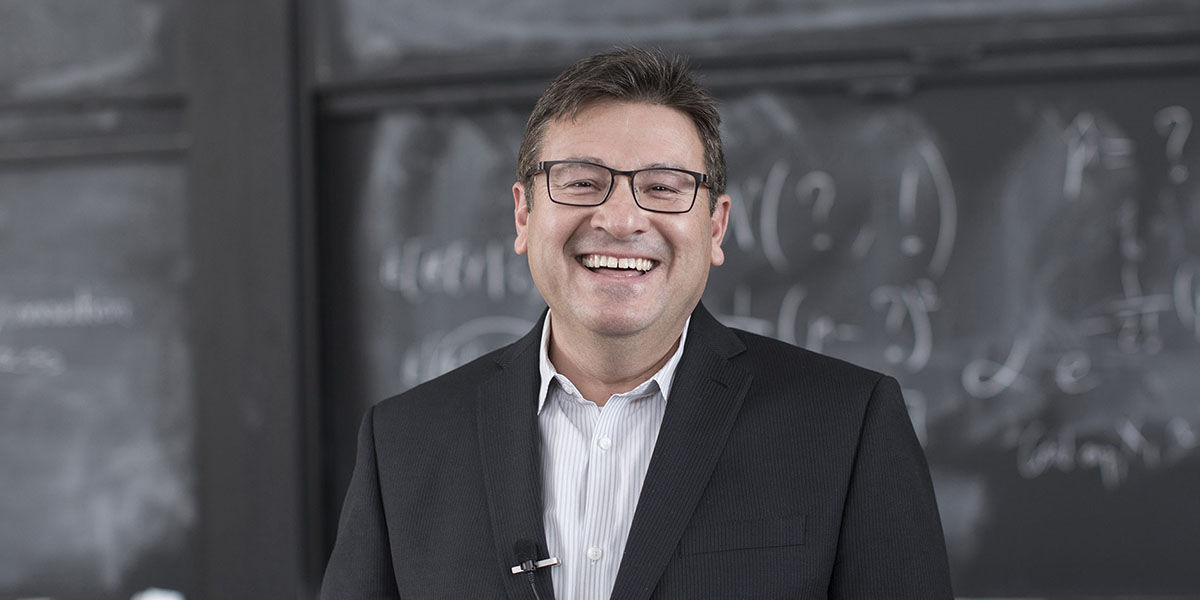Madrid as a model of leadership and innovation
Madrid has become a worldwide reference for leadership and innovation thanks to a workshop led by MIT Professional Education, with the support of Global Alumni.
David Niño, Senior Lecturer in Bernard M. Gordon – MIT Engineering and a leading expert in these topics, directed this meeting. It was aimed at executives from various sectors, all with an innovative spirit and a true desire to lead.
It’s the first time that Madrid has hosted an in-person workshop with MIT Professional Education, and the effort has been a complete success.
Clara Piloto, the director of of Global Programas of MIT Professional Education, highlighted the “global impact that this institution’s educational programs are having across the world, and its complete commitment to Spanish speakers.” He also stressed that “since its launch just a few months ago, there are already more than 1,000 executives and other professionals participating in our online courses in Spanish.”
A UNIVERSITY CAN’T TEACH SOMEONE HOW TO BE A LEADER, BUT IT CAN INSPIRE AND GUIDE THE DEVELOPMENT OF LEADERSHIP QUALITIES
Technology is changing the world and our society at a breakneck pace. In David Niño’s opinion, “tech development professionals are so focused on their work that they don’t realize exactly how much their technologies are influencing and modifying people’s lives.”
The leadership expert has drawn attention to the fact that “leadership and technology have a symbiotic relationship. They can coexist and improve our society.” Similarly, it’s clear that “a university can’t teach someone how to be a leader, but it can inspire and guide the development of leadership qualities.”
In the same vein, Clara Piloto, emphasizes that the institution’s responsibility is to “motivate students to use their talent and knowledge in order to make the world a better place.”
LEADING INNOVATION HELPED PARTICIPANTS CREATE AND DIRECT REAL-LIFE TEAMS TO JUMPSTART INNOVATION
In this workshop, Clara noted that “technology plays a fundamental role in quality professional training that prepares us for the future. Implementing online technologies, collaborative learning through discussion groups, and real time modelling are the pillars of this truly unique and valuable learning experience.”
Leading Innovation helped participants create and direct real-life teams to jumpstart innovation, implement change with a mix of “soft” and “hard” strategies, and identify and develop each person’s unique strengths.
It was an exceptional opportunity to see first-hand how MIT, one of the most important educational institutions in the world on the front lines of innovation, has worked to advance science and technology.
For Clara Piloto, making these programs accessible to Spanish-speakers “is our responsibility to our students. Language should never be a barrier to participation in any of our courses.”
INNOVATIVE THINKING IS ONE OF THE MAIN SKILLS THAT COMPANIES ARE LOOKING FOR IN TODAY’S WORKPLACE
The meeting also helped highlight which skills today’s employers are looking for. In Piloto’s opinion, “the most important skill of all is innovative thinking. It means thinking out-of-the-box, being different and unconventional. The second most important skill is how to lead the multicultural teams that make up today’s companies.”
It’s the first in-person workshop that MIT Professional Education has organized in the city, a full year after university started its Spanish-language online programs.
It won’t be the last, either. They are already laying the foundations for future reunions with the primary purpose of making the MIT experience available to the most advanced professionals in the Spanish workforce.
THE MOST IMPORTANT STEP OF A TRANSFORMATIVE PROJECT IS STOPPING AND THINKING ABOUT HOW TO PLAN THE ACTIONS YOU AIM TO CARRY OUT
Cristina Ricaurte, Solutions and Innovations Director of SAP España Fire Hydrant Award winner, confirmed that “this has been the best course I’ve taken in 2019. Two things stand out in my mind: the important messages that I can apply in my daily life, and the perfect balance between theory and practice.” Ricaurte was grateful that this workshop invites you to “stop, think, and plan” after completing a thorough analysis of a situation and your intended objectives.
For her, “the most interesting course material was the case study we addressed, which we can apply to our company in real life.”
Manuel Linares, in charge of Santander Bank’s transformation projects and Fire Hydrant Award winner, had a very positive experience in the workshop. He explained that “through various exhibits and many different topics, we saw firsthand the strategies and techniques we can use to implement change management in our company’s transformative and innovative projects.”
For Linares, “what interested me the most was applying strategies to influence stakeholders to a real case and learning how to manage change in innovative projects.”
The transformative change specialist concluded his praise of the leadership program with a glowing recommendation: “Without a doubt, this course will be very useful for executives of any multinational company. It’s a fascinating journey, combining Professor Niño’s experience with practical examples that you can apply to your own company the very next day.”
